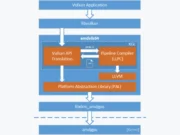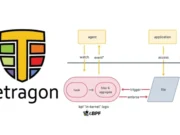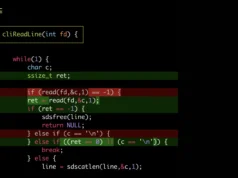Ethical Hacking is an authorized practice of bypassing system security to identify potential data breaches and threats in a network. The company that owns the system or network allows Cyber Security engineers to perform such activities in order to test the system’s defenses. Thus, unlike malicious hacking, this process is planned, approved, and more importantly, legal.
Ethical hackers aim to investigate the system or network for weak points that malicious hackers can exploit or destroy. They collect and analyze the information to figure out ways to strengthen the security of the system/network/applications. By doing so, they can improve the security footprint so that it can better withstand attacks or divert them.
Ethical hackers are hired by organizations to look into the vulnerabilities of their systems and networks and develop solutions to prevent data breaches. Consider it a high-tech permutation of the old saying “It takes a thief to catch a thief.”
They check for key vulnerabilities include but are not limited to:
• Injection attacks
• Changes in security settings
• Exposure of sensitive data
• Breach in authentication protocols
• Components used in the system or network that may be used as access points
Now, as you have the idea of what is ethical hacking, it’s time to learn the type of hackers.
Type of Hackers
The practice of guidedhacking is called “White Hat” hacking, and those who perform it are called White Hat hackers. In contrast to Ethical Hacking, “Black Hat” hacking describes practices involving security violations. The Black Hat hackers use illegal techniques to compromise the system or destroy information.
Unlike White Hat hackers, “Grey Hat” hackers don’t ask for permission before getting into your system. But Grey Hats are also different from Black Hats because they don’t perform hacking for any personal or third-party benefit. These hackers do not have any malicious intention and hack systems for fun or various other reasons, usually informing the owner about any threats they find. Grey Hat and Black Hat hacking are both illegal as they both constitute an unauthorized system breach, even though the intentions of both types of hackers differ.
White Hat vs Black Hat Hacker
The best way to differentiate between White Hat and Black Hat hackers is by taking a look at their motives. Black Hat hackers are motivated by malicious intent, manifested by personal gains, profit, or harassment; whereas White Hat hackers seek out and remedy vulnerabilities, so as to prevent Black Hats from taking advantage.
The other ways to draw a distinction between White Hat and Black Hat hackers include:
• Techniques Used
White Hat hackers duplicate the techniques and methods followed by malicious hackers in order to find out the system discrepancies, replicating all the latter’s steps to find out how a system attack occurred or may occur. If they find a weak point in the system or network, they report it immediately and fix the flaw.
• Legality
Even though White Hat hacking follows the same techniques and methods as Black Hat hacking, only one is legally acceptable. Black Hat hackers break the law by penetrating systems without consent.
• Ownership
White Hat hackers are employed by organizations to penetrate their systems and detect security issues. Black hat hackers neither own the system nor work for someone who owns it.
After understanding what is ethical hacking, the types of ethical hackers, and knowing the difference between white-hat and black-hat hackers, let’s have a look at the ethical hacker roles and responsibilities.
Roles and Responsibilities of an Ethical Hacker
Ethical Hackers must follow certain guidelines in order to perform hacking legally. A good hacker knows his or her responsibility and adheres to all of the ethical guidelines. Here are the most important rules of Ethical Hacking:
• An ethical hacker must seek authorization from the organization that owns the system. Hackers should obtain complete approval before performing any security assessment on the system or network.
• Determine the scope of their assessment and make known their plan to the organization.
• Report any security breaches and vulnerabilities found in the system or network.
• Keep their discoveries confidential. As their purpose is to secure the system or network, ethical hackers should agree to and respect their non-disclosure agreement.
• Erase all traces of the hack after checking the system for any vulnerability. It prevents malicious hackers from entering the system through the identified loopholes.
Benefits of Ethical Hacking
Learning ethical hacking involves studying the mindset and techniques of black hat hackers and testers to learn how to identify and correct vulnerabilities within networks. Studying ethical hacking can be applied by security pros across industries and in a multitude of sectors. This sphere includes network defender, risk management, and quality assurance tester.
However, the most obvious benefit of learning ethical hacking is its potential to inform and improve and defend corporate networks. The primary threat to any organization’s security is a hacker: learning, understanding, and implementing how hackers operate can help network defenders prioritize potential risks and learn how to remediate them best. Additionally, getting ethical hacking training or certifications can benefit those who are seeking a new role in the security realm or those wanting to demonstrate skills and quality to their organization.
You understood what is ethical hacking, and the various roles and responsibilities of an ethical hacker, and you must be thinking about what skills you require to become an ethical hacker.























